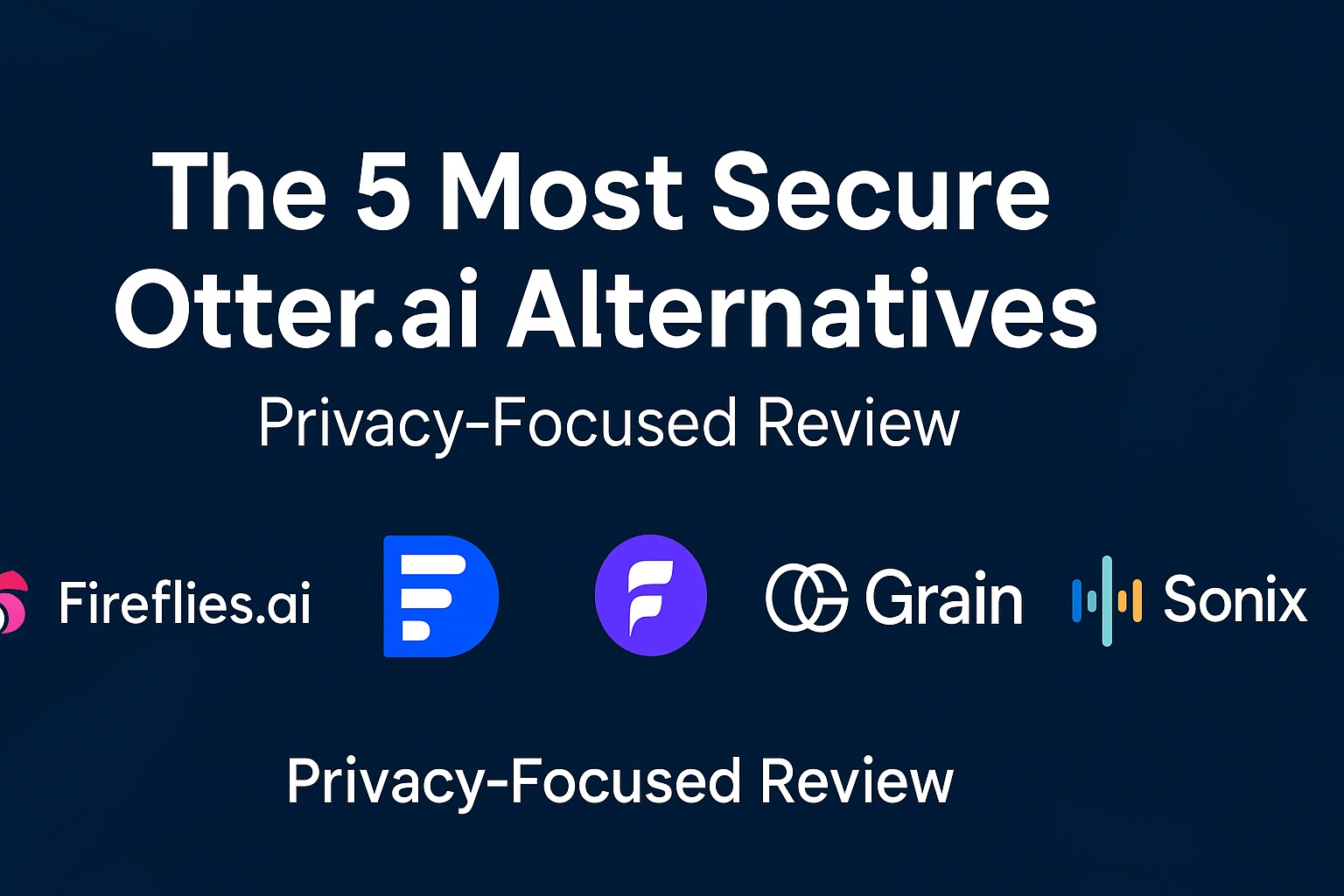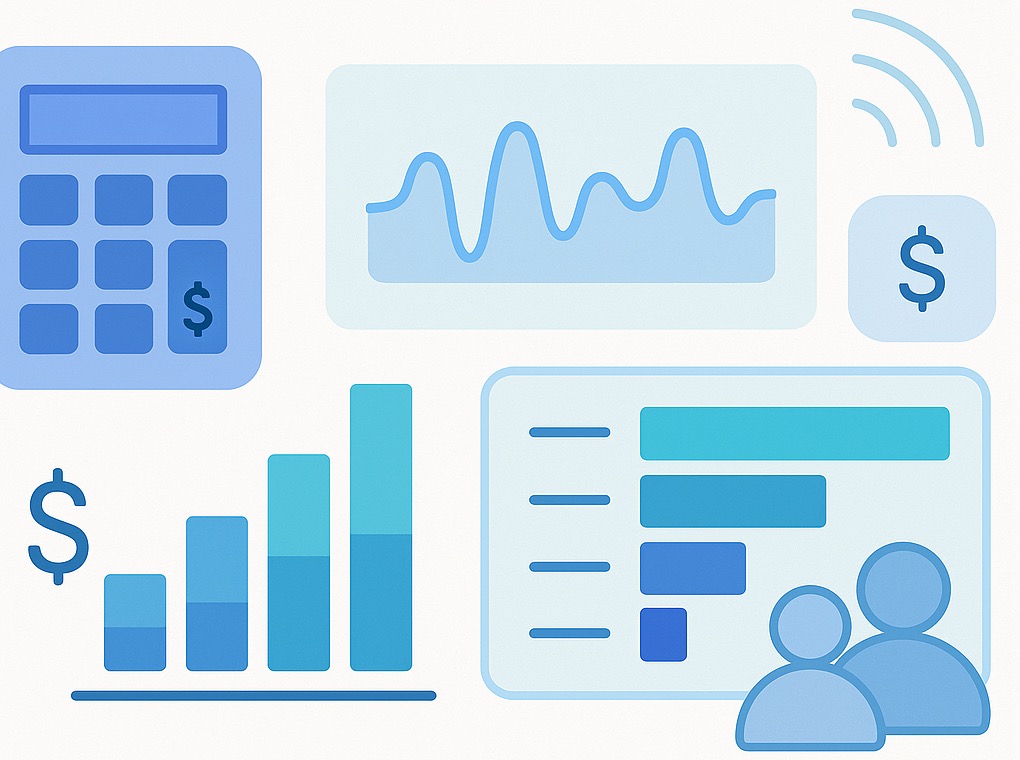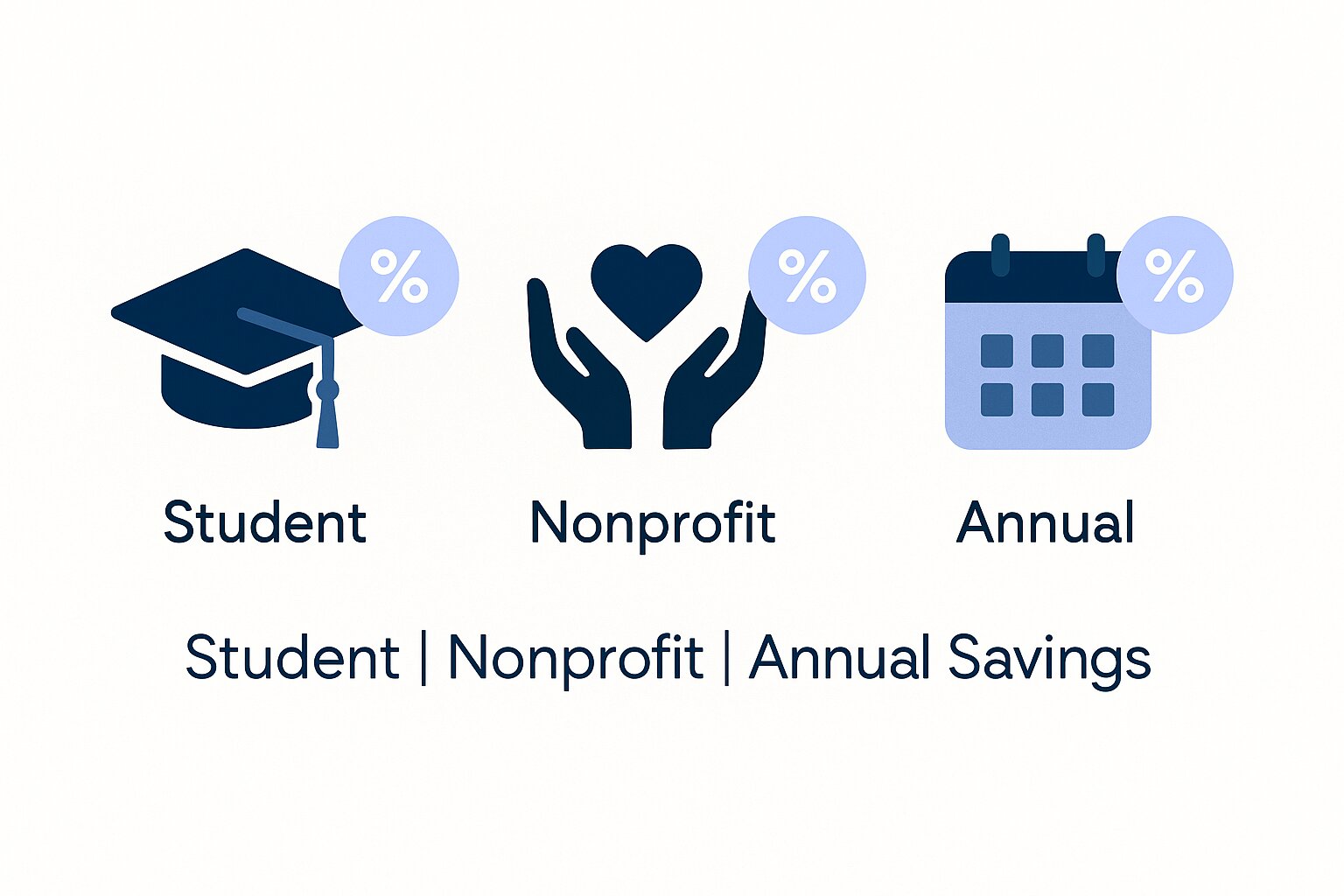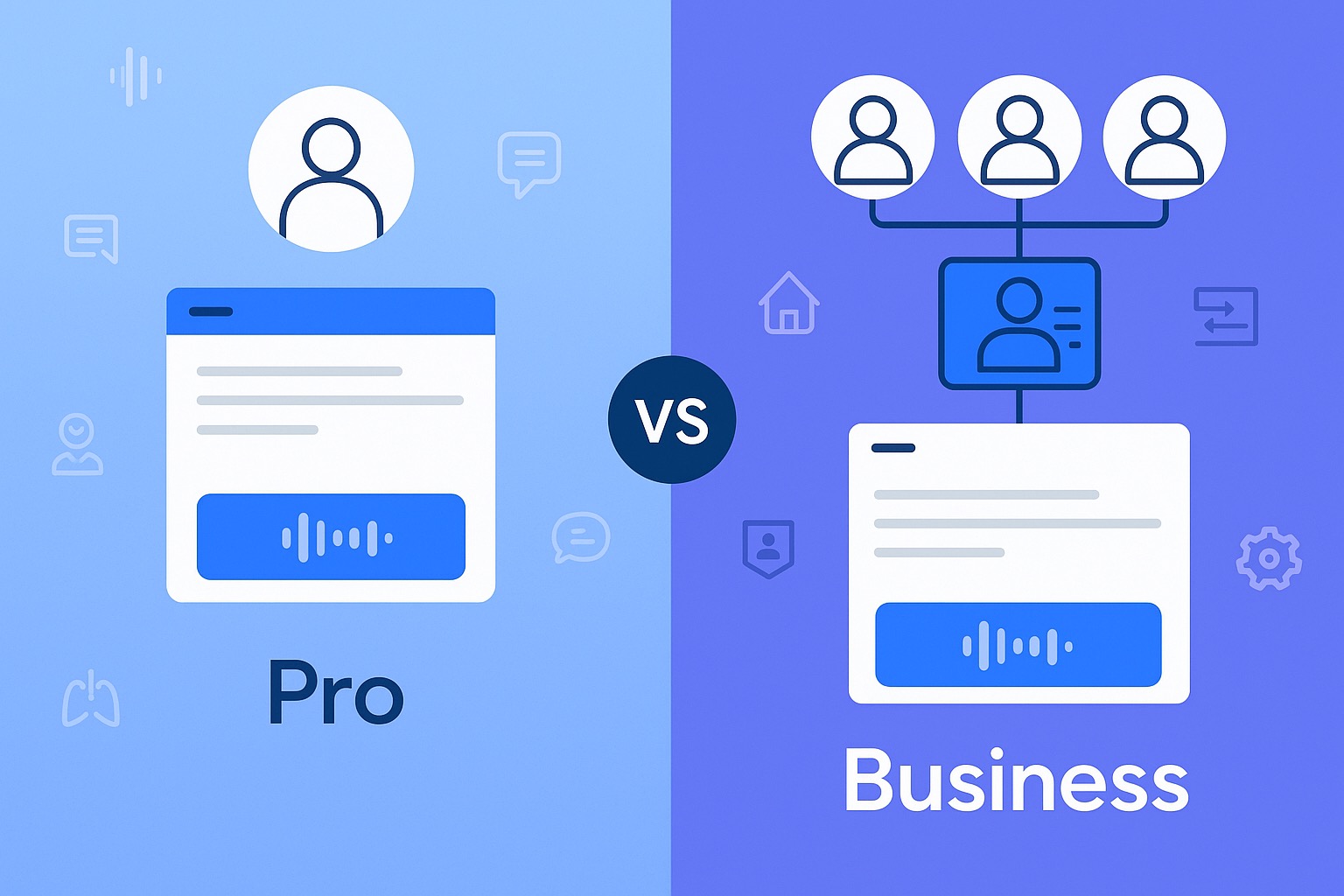· Whispr Notes · 8 min read
How Secure Are AI Voice Notes? A Guide to Privacy & Encryption
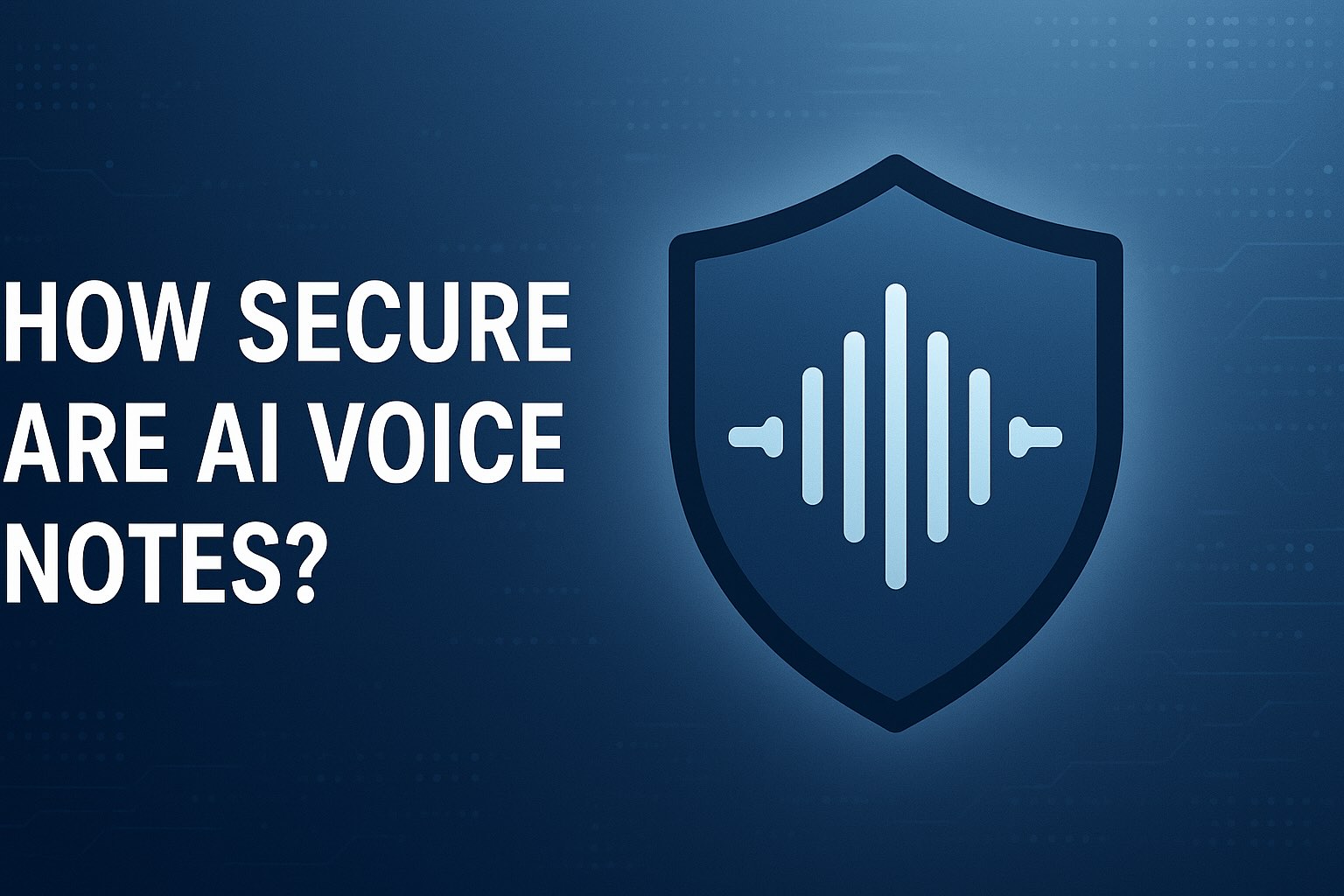
AI-powered voice memo and transcription apps are revolutionary. They can turn a rambling hour-long meeting into perfect text, capture fleeting thoughts on the go, and create searchable records of our most important conversations. The convenience is undeniable.
But with this power comes a critical question that too few are asking: Where does my data go, and how secure is it?
When you speak into your phone, you’re not just creating an audio file. You’re sharing your voice, your ideas, your confidential client information, your private medical thoughts, and your unedited brainstorms. Entrusting that data to an AI requires a level of trust that should be earned, not assumed.
This guide is built on a foundation of transparency. We believe every user has the right to understand how this technology works and what to look for in a truly secure note-taking app. We will dive deep into the technical details of encryption, data handling, and compliance standards like HIPAA and GDPR. By the end, you’ll have a complete framework for evaluating any AI note-taker and making an informed decision about your privacy.
How AI Transcription Works (And Where Your Data Goes)
To understand security, you first need to understand the process. When you hit “record” and start speaking, your data goes on a journey. While it seems like magic, it’s a predictable, multi-step process.
- Audio Capture: Your device’s microphone records your voice and saves it as a digital audio file (like an MP3 or WAV).
- Data Transmission: This is the first critical security checkpoint. The audio file is sent from your device to a server for processing.
- AI Processing (ASR): The file is fed into an Automatic Speech Recognition (ASR) model. This complex AI system analyzes the soundwaves, breaks them down into phonemes (the basic units of sound), and uses statistical models to predict the most likely sequence of words.
- Text Generation: The model outputs a raw text transcript.
- Storage: This is the second critical checkpoint. The original audio file and the newly generated text transcript are stored.
The most important question is: Where do steps 2-5 happen?
- On-Device Processing: Some apps perform all processing directly on your phone or computer. The data never leaves your device unless you choose to export it. This is the most private option by default but is often less powerful and accurate due to the limited processing power of a personal device.
- Cloud Processing: Most high-accuracy AI note-takers use this method. Your data is sent to powerful servers in the cloud for processing and storage. This offers superior accuracy and features but places immense responsibility on the app provider to secure their infrastructure.
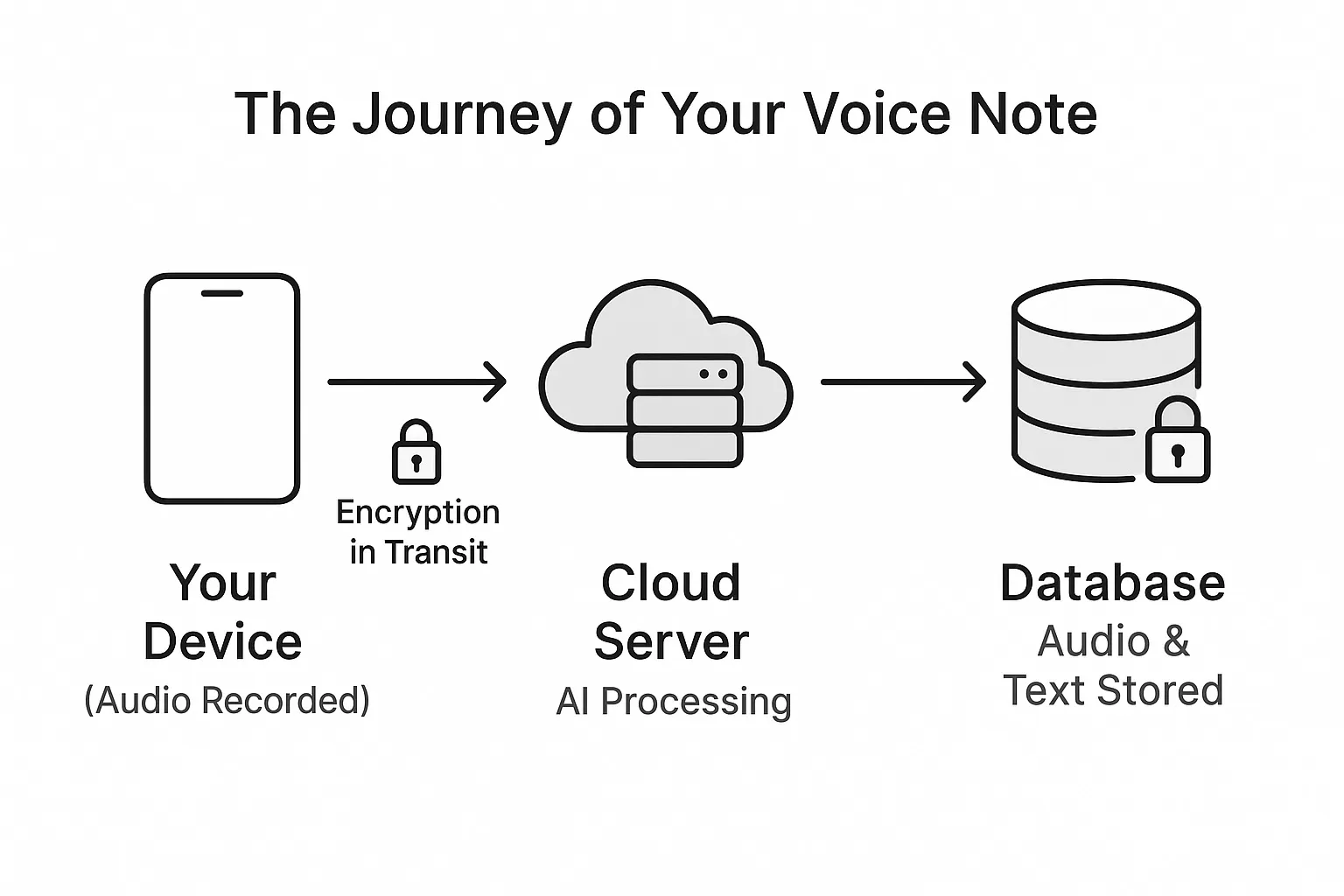
The Pillars of a Secure Note-Taking App: A Checklist
Not all apps are created equal. When evaluating an AI note-taker, look for these non-negotiable pillars of security. A trustworthy provider will be transparent and proud to share details about each one.
✅ Pillar 1: End-to-End Encryption
Encryption is the process of scrambling your data into an unreadable code that can only be unlocked with a specific key. Without it, your data is an open book.
- Encryption in Transit: This protects your data as it travels from your device to the cloud servers. The industry standard is TLS (Transport Layer Security), the same technology that protects your credit card information when you shop online. You can tell it’s active when you see a padlock icon in your browser’s address bar. Never use an app that doesn’t use TLS.
- Encryption at Rest: This protects your data while it’s stored on the company’s servers. Think of it as a safe for your files. Even if a malicious actor were to gain physical access to the server’s hard drives, your data would be unreadable gibberish without the encryption keys. The gold standard here is AES-256, a military-grade encryption algorithm.
✅ Pillar 2: Transparent Data Handling & Anonymization
This is where a company’s true character shows. How do they treat your data once they have it?
The biggest question is: Do they use your data to train their AI models?
Many AI companies improve their models by “learning” from the data users upload. While this can improve accuracy, it poses a significant privacy risk if not handled correctly.
- The Gold Standard (Zero-Knowledge): The most private apps operate on a “zero-knowledge” principle. They do not use your data for AI training, period. Their employees cannot access your notes, and your data is used solely to provide the service to you.
- The Acceptable Standard (Anonymized Training): Some services use customer data for training but only after a rigorous anonymization process. This involves stripping out all Personally Identifiable Information (PII)—names, addresses, phone numbers, etc.—so that the data used for training cannot be traced back to an individual user.
A trustworthy provider will have a clear, easy-to-read privacy policy that explicitly states their position on this. If they are vague, assume they are using your data.
✅ Pillar 3: Robust Access Controls
Who has the “keys” to your data? Encryption is only as strong as the policies controlling who can bypass it.
- Internal Access: The provider should have strict internal policies that limit employee access to user data to an absolute minimum (e.g., only for specific customer support requests, with your explicit permission).
- User-Facing Security: The app should provide you with tools to protect your own account. This includes Two-Factor Authentication (2FA), which requires a second form of verification (like a code from your phone) in addition to your password, making it much harder for your account to be compromised.
Understanding Compliance: Is Your App HIPAA or GDPR Compliant?
For many professionals, basic security isn’t enough. They operate under strict regulatory frameworks that carry heavy penalties for violations.
For Healthcare Professionals: HIPAA Compliance
The Health Insurance Portability and Accountability Act (HIPAA) sets the standard for protecting sensitive patient health information (PHI) in the United States. If you are a doctor, therapist, or any healthcare worker recording notes that mention patients, using a non-compliant app is not an option.
For an app to be HIPAA compliant, it must:
- Implement all the security pillars we discussed (especially encryption).
- Have strict access controls and audit logs to track who has accessed data.
- Be willing to sign a Business Associate Agreement (BAA). This is a legally binding contract that obligates the app provider to uphold their responsibilities in protecting PHI.
If a provider does not offer to sign a BAA, it is not HIPAA compliant.
For Users in the EU: GDPR Compliance
The General Data Protection Regulation (GDPR) is the European Union’s landmark data privacy law. It grants users unprecedented control over their personal data.
Key GDPR rights include:
- The Right to Erasure (“Right to be Forgotten”): You must be able to permanently delete your account and all associated data easily.
- Data Portability: You must be able to download all of your data in a common, machine-readable format.
- Data Sovereignty: Many users prefer that their data is stored on servers located within the EU.
A GDPR-compliant app will not only respect these rights but will make it easy for you to exercise them.
AI Note-Taker Accuracy: Can It Really Replace a Human?
This is a question of both technology and trust. While competitors often tout “99% accuracy” in their marketing, the reality is more nuanced.
AI transcription has become incredibly accurate, often matching or even exceeding human performance in ideal conditions. However, its performance depends heavily on several factors:
- Audio Quality: This is the #1 factor. A clear recording from a high-quality microphone with no background noise will yield the best results. A muffled recording from a noisy coffee shop will struggle.
- Accents & Dialects: While models are getting better, strong regional accents or non-native speakers can sometimes lower accuracy.
- Specialized Terminology: AI models trained on general language may not recognize highly technical, legal, or medical jargon.
- Cross-talk: When multiple people are speaking over each other, it is extremely difficult for an AI to disentangle the voices.
Tips to Improve Transcription Accuracy:
- Reduce Background Noise: Record in a quiet space whenever possible.
- Use a Good Microphone: An external microphone is almost always better than your phone’s built-in mic.
- Speak Clearly and Directly: Avoid mumbling and speak towards the microphone.
- One Speaker at a Time: In meetings, encourage participants not to speak over one another.
So, can it replace a human? For most day-to-day tasks, like meeting notes and personal memos, absolutely. For a legal deposition or a critical medical diagnosis where every single word must be perfect, it’s best used as a powerful first-draft tool that is then reviewed by a human.
Conclusion & Frequently Asked Questions (FAQ)
Choosing an AI note-taking app is an act of trust. By understanding how the technology works and demanding transparency on encryption, data handling, and compliance, you can take control of your digital privacy. Look for providers who tackle these tough questions openly and build their service on a foundation of security.
FAQ
2. Are my voice notes encrypted? Yes. All data is encrypted both in transit (while traveling to our servers) using TLS and at rest (while stored on our servers) using the AES-256 standard.
3. Can I use this app for confidential medical or legal notes? For medical notes, we offer a HIPAA-compliant plan that includes a signed Business Associate Agreement (BAA), making it suitable for handling Protected Health Information (PHI). For highly sensitive legal matters, we recommend using the app as a productivity tool for creating first drafts that are then verified.
4. How secure are AI note-taking apps in general? The security of an AI note-taking app depends entirely on the provider. An app that uses end-to-end encryption, has a zero-knowledge policy, and offers robust tools like 2FA is extremely secure. An app that is vague about its policies should be treated with caution. Always do your research before uploading sensitive information.

